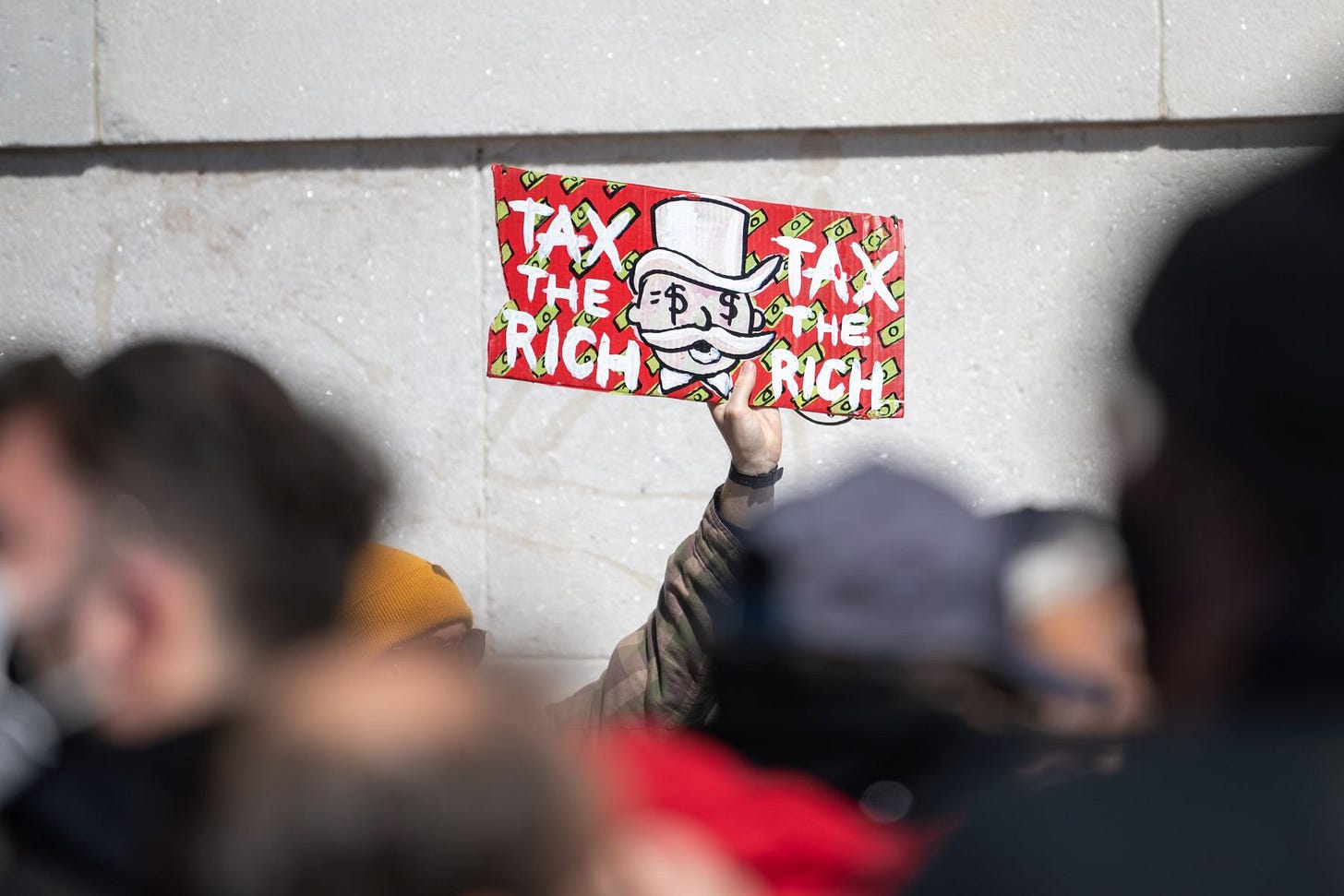A new inequality indicator, and a blueprint for taxing the rich
Unpacking The World Bank’s report on within-country inequality, and economist Gabriel Zucman’s proposal for taxing the ultra-rich which recently dropped.
It’s like that bus you’ve been waiting on for ages, then two come along at once - this week we’re covering a report double whammy in the fight against inequality.
At Oxfam, we’ve been working hard to convince governments to set targets to reduce inequality and persuade them to work together to tax the ultra-rich. The World Bank’s first report on its new within-country inequality indicator and Gabriel Zucman’s blueprint for taxing the rich commissioned by the G20 are two big steps forward.
In this week’s Equals, we look at the numbers behind these two reports.
52 countries have high levels of income inequality. The World Bank’s new goal is to reduce the number of countries with high inequality (most are in Sub-Saharan Africa and Latin America) —you can read Max’s deep dive about it here. The Bank’s new report finds that a third of countries have a Gini Index greater than 40, which is the level agreed by the Bank to represent high inequality.
Long-term inequality decline? The Bank’s report highlights that the number of unequal countries has fallen from 77 in 2000 to 52 in 2022. However, the challenge of having a cut-off point between “high” and “low/moderate” inequality is that it doesn’t show movement within these two bands. For example, we recently found that income inequality is high or increasing in 60% of low- and middle-income countries receiving grants or loans from the IMF or World Bank.
Out with the old (data)? 1/3 of countries in the World Bank database are using household surveys that are more than 5 years old (before 2018). Improving data collection, especially estimates of top incomes, is a vital step towards an evidence-driven approach to reducing inequality.
Taxing the ultra-rich. Star economist Gabriel Zucman has turned in his much-anticipated blueprint for taxing the ultra-rich, which was commissioned by Brazil for its G20 presidency.
The top line is that taxing the rich is feasible and enforceable. The bottom line is that his proposed tax on billionaires and centimillionaires would raise at least $300 billion.
Zucman’s proposal is for an income tax top-up for the ultra-rich worth at least 2% of their wealth.
Numerical nuggets from the report.
1/ Working and middle classes pay a higher rate of tax than the super-rich). In France, for example, the effective tax rate is around 52% for 99.99% of the population —billionaires on the other hand pay just 27%.
2/ A minimum tax that ensures centimillionaires and billionaires pay at least the same as everyone else would raise at least $302 billion. Introducing Zucman’s proposed 2% tax would increase effective tax rates (all taxes included) from less than 28% to 34%.
3/ The tax would have to go further to reduce inequality. Billionaire wealth has grown by 7.1% a year on average since 1987, and so a minimum tax proposal would have to be higher than this to reduce their overall wealth. A tax of 8% could raise over a trillion dollars.
Big whig support. 20 ex-heads of state and government called on the G20 leaders to sign and seal a global deal to tax the ultra-rich. Big hitters in the letter include Michelle Bachelet (Former President of Chile) and Helen Clark (Former Prime Minister of New Zealand), and it was published by Reuters, Spiegel and El País, with great coverage including in Liberation, and Bloomberg Tax.
Something to read/listen to
Read Project Syndicate talks to our Nobel laureate and Equals friend Joseph Stiglitz about inflation, market power and why neoliberalism has failed.
Read about Equals editor Simon Maina’s experience joining a protest for the first time in Kenya and what policies he hopes to see.
Listen to Equals interview with Fadhel Kaboub on how a just transition is impossible within the structures of colonialism and extractivism.





